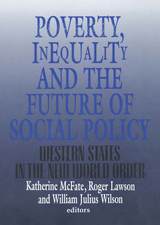10 start with P start with P

Contributors. Tamar Barzel, John Brackett, Douglas Ewart, Ajay Heble, Vijay Iyer, Thomas King, Tracy McMullen, Paul D. Miller/DJ Spooky, Nicole Mitchell, Roscoe Mitchell, Famoudou Don Moye, Aldon Lynn Nielsen, Eric Porter, Marc Ribot, Matana Roberts, Jaribu Shahid, Julie Dawn Smith, Wadada Leo Smith, Alan Stanbridge, John Szwed, Greg Tate, Scott Thomson, Rob Wallace, Ellen Waterman, Corey Wilkes

The first scholarly exploration of the forums, practice, and economics of functional medicine.
Physicians of the Future interrogates the hidden logics of inclusion and exclusion in functional medicine (FM), a holistic form of personalized medicine that targets chronic disease. Rosalynn Vega uncovers how, as “wounded healers,” some FM practitioners who are former chronic disease sufferers turn their illness narratives into a form of social capital, leveraging social media to relate to patients and build practices as “doctor-influencers.” Arguing that power and authority operate distinctly in FM when compared to conventional medicine, largely because FM services are paid for out of pocket by socioeconomically privileged “clients,” Vega studies how FM practitioners engage in entrepreneurship of their own while critiquing the profit motives of the existing healthcare system, pharmaceutical industry, and insurance industry. Using data culled from online support groups, conferences, docuseries, blogs, podcasts, YouTube, and TED Talks, as well as her own battles with chronic illness, Vega argues that FM practices prioritize the individual while inadvertently reinscribing inequities based on race and class. Ultimately, she opens avenues of possibility for FM interlocutors wrestling with their responsibility for making functional medicine accessible to all.


The Predator Effect concerns predatory publishing — it is the first to chart both the rise and impact of deceptive publishing. The author — a scientific communications expert with 20 years’ experience — looks at how predatory journals had become an accepted part of scholarly publishing, reviewing in turn the history, development and impact of predatory journals. The book also puts their rise in context of wider issues such as Open Access and publication ethics. Other issues it addresses include: defining predatory journals, the history of predatory publishing practices, Beall’s List, authors’ motivations and the future of predatory publishing practices.

The idea that predictive science can simplify the decision-making process by creating a clearer picture of the future is deeply appealing in principle, but deeply problematic in practice.
Prediction offers a fascinating and wide-ranging look at the interdependent scientific, political, and social factors involved in using science-based predictions to guide policy making. Through ten detailed case studies, it explores society's efforts to generate reliable scientific information about complex natural systems and to use that information in making sound policy decisions. The book:
- provides an overview of predictive science from historical, scientific, political, and behavioral perspectives offers case studies of the use and misuse of scientific predictions on subjects ranging from asteroids to nuclear waste disposal
- proposes a practical analytical framework for the use of predictive science in setting policy
- recommends actions and policies that can increase the likelihood of effective decisions
Prediction is the first book to look at the numerous and varied scientific, social, and political factors involved in making and using predictions relevant to a wide range of current environmental controversies and challenges. It provides much-needed context for understanding predictions and scientific pronouncements, and is an important work for anyone concerned with interactions between science and policy making.

The result of a lecture series held at the cx centre for interdisciplinary studies at the Academy of Fine Arts, Munich, The Present of the Future explores our current relationship to the future and considers strategies for artists and scholars to establish effective action for shaping alternative futures. Contributors to the book approach this problem from the perspective of diverse disciplines, including art, design, architecture, and philosophy.

Comparing national efforts to preserve public lands, William R. Lowry investigates how effectively and under what conditions governments can provide goods for future generations.
Providing intergenerational goods, ranging from balanced budgets to space programs and natural environments, is particularly challenging because most political incentives reward short-term behavior. Lowry examines the effect of institutional structure on the public delivery of these goods. He offers a theoretical framework accounting for both the necessary conditions — public demand, political stability, and official commitment to long-term delivery — and constraining factors — the tensions between public agencies and politicians as well as between different levels of government — that determine the ability of a nation to achieve long-term goals.
In support of this argument, Lowry evaluates data on park systems from more than one hundred countries and provides in-depth case studies of four — he United States, Australia, Canada, and Costa Rica — to show how and why the delivery of intergenerational goods can vary. For each of the cases, he reviews background information, discusses constraints on agency behavior, and assesses expansion of the park systems and restoration of natural conditions at specific locations.
This extensive comparative analysis of the preservation of public lands offers new insights into the capability of nations to pursue long-term goals.

The essays in this collection, written by some of the leading scholars in Popular Culture Studies, turn the page on the new millennium to see what are the directions of approach and the opportunities to be gained in recognition of the compelling need for studies in everyday cultures.

This volume bares professional concerns, relationships, ambitions, and insecurities about working in academe. Professions provides hard-to-get insider information for students contemplating an academic career. It also challenges professional scholars to retrieve the intellectual curiosity that drew them to scholarship in the first place while demonstrating how disagreement on controversial issues can be conducted with respect, good humor, and an open mind.
Professions features:
Jane Tompkins and Gerald Graff
John McGowan and Regenia Gagnier
James Phelan and James Kincaid
Marjorie Perloff and Robert von Hallberg
Judith Jackson Fossett and Kevin Gaines
Dennis W. Allen and Judith Roof
Niko Pfund, Gordon Hutner, and Martha Banta
Geoffrey Galt Harpham
Donald E. Hall and Susan S. Lanser
J. Hillis Miller, Herbert Lindenberger, Sandra Gilbert, Bonnie Zimmerman, Nellie Y. McKay, and Elaine Marks

A conservation easement is a legal agreement between a property owner and a conservation organization, generally a private nonprofit land trust, that restricts the type and amount of development that can be undertaken on that property. Conservation easements protect land for future generations while allowing owners to retain property rights, at the same time providing them with significant tax benefits. Conservation easements are among the fastest growing methods of land preservation in the United States today.
Protecting the Land provides a thoughtful examination of land trusts and how they function, and a comprehensive look at the past and future of conservation easements. The book:
- provides a geographical and historical overview of the role of conservation easements
- analyzes relevant legislation and its role in achieving community conservation goals
- examines innovative ways in which conservation easements have been used around the country
- considers the links between social and economic values and land conservation
Contributors, including noted tax attorney and land preservation expert Stephen Small, Colorado's leading land preservation attorney Bill Silberstein, and Maine Coast Heritage Trust's general counsel Karin Marchetti, describe and analyze the present status of easement law. Sharing their unique perspectives, experts including author and professor of geography Jack Wright, Dennis Collins of the Wildlands Conservancy, and Chuck Roe of the Conservation Trust of North Carolina offer case studies that demonstrate the flexibility and diversity of conservation easements. Protecting the Land offers a valuable overview of the history and use of conservation easements and the evolution of easement-enabling legislation for professionals and citizens working with local and national land trusts, legal advisors, planners, public officials, natural resource mangers, policymakers, and students of planning and conservation.
READERS
Browse our collection.
PUBLISHERS
See BiblioVault's publisher services.
STUDENT SERVICES
Files for college accessibility offices.
UChicago Accessibility Resources
home | accessibility | search | about | contact us
BiblioVault ® 2001 - 2024
The University of Chicago Press









